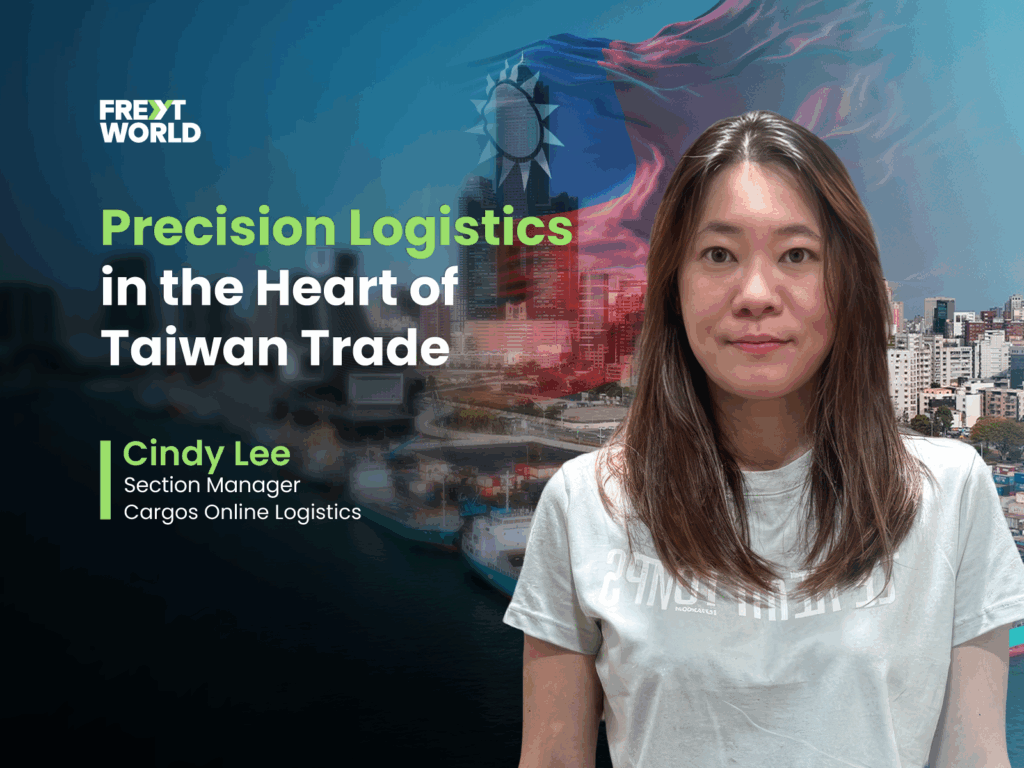By David Milne, Managing Director at KC Group Shipping Ltd

In global logistics, moving goods is rarely as simple as transporting a container from one location to another. For businesses dealing in high-value, highly regulated commodities – particularly alcohol, tobacco and energy products – the stakes are significantly higher. These “excise goods” carry substantial tax liabilities that can severely impact a company’s liquidity if not managed with precision.
At the centre of this challenge is a mechanism that is critical, but often misunderstood: the Excise Movement Guarantee (EMG).
This facility allows excise goods to move through the supply chain without triggering immediate duty payments. Despite its importance, very few logistics providers are authorized to offer it. Across the entire United Kingdom, it is estimated that only three independent freight forwarders hold this accreditation.
KC Group Shipping Ltd ., based in Glasgow and a Freyt World member, is one of them.
This article explains how the Excise Movement Guarantee works, why it is transformational for UK importers and exporters, and how KC Group Shipping – under the leadership of Managing Director David Milne – leverages this unique capability to empower clients in the excise sector.
The Hidden Weight of Excise Duty
Excise duty is levied on specific goods produced within or imported into the UK, and the costs are substantial. For a distributor importing wine from Europe or a distillery exporting Scotch whisky globally, duty can often exceed the value of the product itself.
Ordinarily, excise duty becomes payable as soon as goods enter free circulation. But excise products frequently need to move between bonded warehouses, bottling plants and export facilities while still under suspension. If businesses were forced to pay duty every time goods moved, the strain on their working capital would be immense.
“The liquidity of our clients is often their most precious asset,” says David Milne, Managing Director of KC Group Shipping Ltd. “If hundreds of thousands of pounds in duty are locked in transit, businesses lose the ability to invest, scale or even operate efficiently. Our role is to eliminate that friction.”
How Duty Suspension Works
To protect a company’s cash flow, excisable goods may move under duty suspension, provided they travel between authorised premises such as bonded warehouses. HMRC, however, requires certainty that if goods fail to reach their destination or are diverted, the duty liability will still be paid.
This is exactly what the Excise Movement Guarantee provides. It is effectively a financial commitment made to HMRC by an approved freight forwarder – such as KC Group Shipping – ensuring that any excise duty arising from an irregular movement will be settled.
Very few forwarders offer this service because the financial exposure, compliance obligations and HMRC vetting process are exceptionally stringent. To hold an EMG, a company must demonstrate:
- • impeccable compliance and audit history
- • strong financial standing
- • robust digital tracking and control systems
- • deep operational understanding of excise regulations
KC Group Shipping has passed all these thresholds.
An Exclusive Capability in the Independent Forwarding Sector
The scarcity of this service is significant. While large multinationals may provide EMGs as part of their global infrastructure, independent forwarders offering this level of security and personalised service are extremely rare.
“The barriers to entry are high,” Milne explains.
“Being one of the only independent UK forwarders with this guarantee reflects our operational rigour. We embraced the responsibility because it’s essential to properly serve the drinks and excise sector across Scotland, the UK and beyond.”
For clients and overseas partners, this exclusivity provides a major advantage:
the responsiveness and flexibility of an independent, combined with the financial security of a global provider.
How KC Group Shipping’s Guarantee Supports Your Operations
When clients move excise goods with KC Group Shipping, they effectively benefit from KC’s financial standing and compliance framework. Instead of securing their own costly guarantee, clients utilise KC’s existing facility.
The guarantee covers movements:
- • from UK ports to bonded warehouses
- • between bonded warehouses within the UK
- • from bonded warehouses to ports for export
For the UK’s booming Scotch whisky, spirits, wine and beer sectors, this is vital. It enables producers and distributors to move goods between storage, bottling and export facilities without tying up significant sums in duty payments.
“We’re not just moving consignments – we’re unlocking liquidity for our clients,” says Milne.
“By applying our Excise Movement Guarantee, we manage the risk and compliance, allowing our clients to focus on production, sales and growth. In today’s economic climate, that assurance is invaluable.”
For a deeper explanation of how the Excise Movement Guarantee works in practice, including common movement scenarios and compliance considerations, KC Group Shipping has produced an in-depth insight , available here.
Expert Navigation of the Post-Brexit Environment
Brexit has significantly increased the complexity of excise movements. EMCS now operates across a hard border, meaning documentation, ARC codes and regulatory checks must be completed flawlessly.
For many businesses, this caused operational delays and compliance exposure. KC Group Shipping responded by investing heavily in training and systems to ensure clients’ excise movements remain compliant and uninterrupted.
“Brexit changed the rules overnight,” Milne notes.
“Where others stepped back, we stepped forward. The guarantee is the tool, but our expertise is what gets goods moved safely and compliantly.”
A Strategic Advantage for Freyt World Members
KC Group Shipping’s rare accreditation is not just a badge of honour – it is a strategic enabler. For overseas partners and Freyt World members, it simplifies access to the UK excise market and removes the operational and financial complexities associated with duty suspended movements.
Whether supporting a European wine exporter entering the UK or a Scottish distillery expanding its global reach, KC Group Shipping’s Global logistics services , and the Excise Movement Guarantee offers a secure, compliant and agile pathway.
Collaborating With KC Group Shipping: A Trusted Excise Movement Guarantee Partner
In a market often driven by price alone, KC Group Shipping Ltd. stands out by offering value far beyond standard freight services. The Excise Movement Guarantee is a rare and powerful asset that enables clients to protect cash flow, maintain compliance and accelerate growth.
For the global Freyt World network, KC Group Shipping – a truly independent UK forwarder offering this capability – ensures that the UK remains accessible, compliant and commercially attractive.
With David Milne and the KC team providing specialist expertise, even the most complex excise movements become seamless, secure and strategically advantageous. Contact the KC Group Shipping Team on +44 (0)141 420 1700 or email: ist@kcshipping.co.uk

Freyt World Blog Contributor
Freyt World is a global logistics network uniting members from around the world. Our mission is to revolutionize global logistics through collaboration and innovation. Our platform goes beyond networking, enabling members to excel and grow together, featuring articles by logistics professionals for their peers. This series will cover industry-relevant issues and news, providing valuable insights for professionals in the field.

